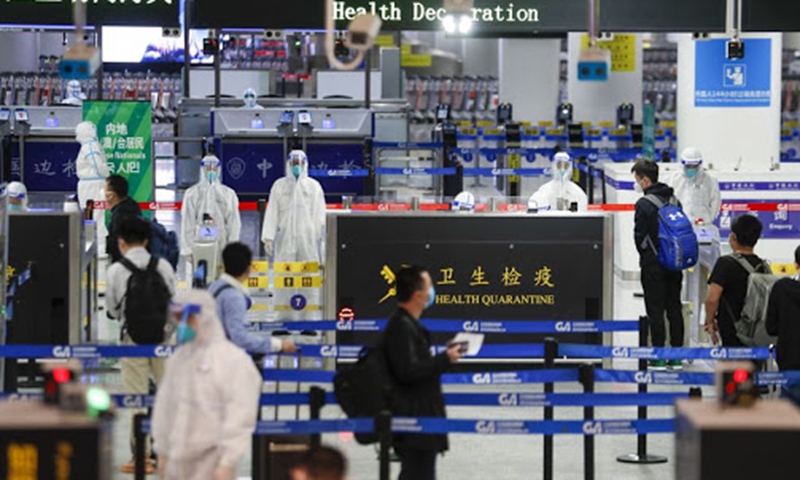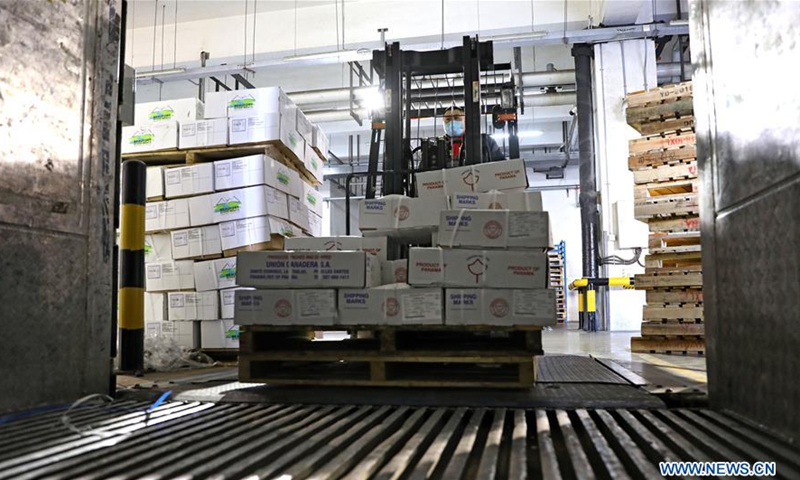
Imported COVID-19 cases Photo: Xinhua
China faces an increasing risk of coronavirus transmission with imported cases from more countries being found and more virus-positive imported cold-chain food being detected in the past 30 days, China's health authority said on Wednesday.
During the past month, China has reported 98 domestic COVID-19 cases, 7.5 times higher than the 30 days before that. Many of the cases were cluster infections, and the transmission routes have become diversified, with the emergence of both human-to-human transmission and product-to-human transmission, Mi Feng, spokesperson of China's National Health Commission, said at a media briefing.
The number of COVID-19-positive imported cold chain foods has increased significantly and affected more provinces in recent days, Mi said, adding a range of products have been detected, including seafood, livestock and poultry products. The infections have also extended from cold-chain food to containers.

A worker unloads boxes of imported frozen meat at a cold storage at Dalian port in Dalian, northeast China's Liaoning Province, April 8, 2020. Since it resumed operation, the port has streamlined its cold chain operation attempting to achieve greater efficiency. (Xinhua/Yao Jianfeng)
However, no COVID-19 infections caused by the direct consumption of contaminated cold chain foods have been found, Zhang Liubo, a research fellow at the Chinese Center for Disease Control and Prevention (CDC), said at the briefing.
Despite these challenges, China is confident of preventing another COVID-19 outbreak in winter, said Wu Zunyou, chief epidemiologist of the Chinese CDC, at the briefing.
China will soon see large population movements during the Spring Festival holidays. However, based on the experience of the past 11 months, "we have confidence in preventing a resurgence of COVID-19 infections," Wu said.
He said that China's "recipe" for COVID-19 was quick reaction, testing, quarantine and treatment for as many people as possible, the timely release of epidemic-related information to the public as well as strong leadership.
Moreover, an urgent usage of COVID-19 vaccines can prevent sporadic infections caused by large gatherings, Wu added.
Global Times
